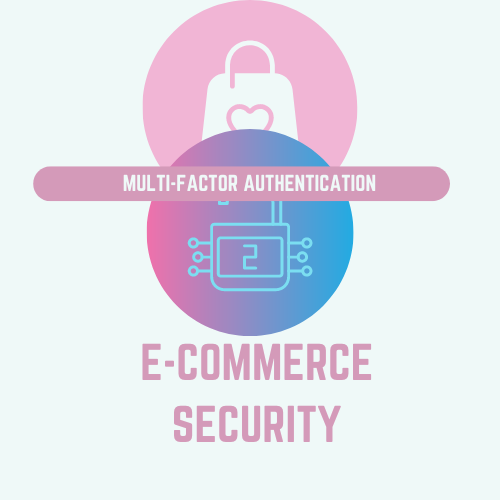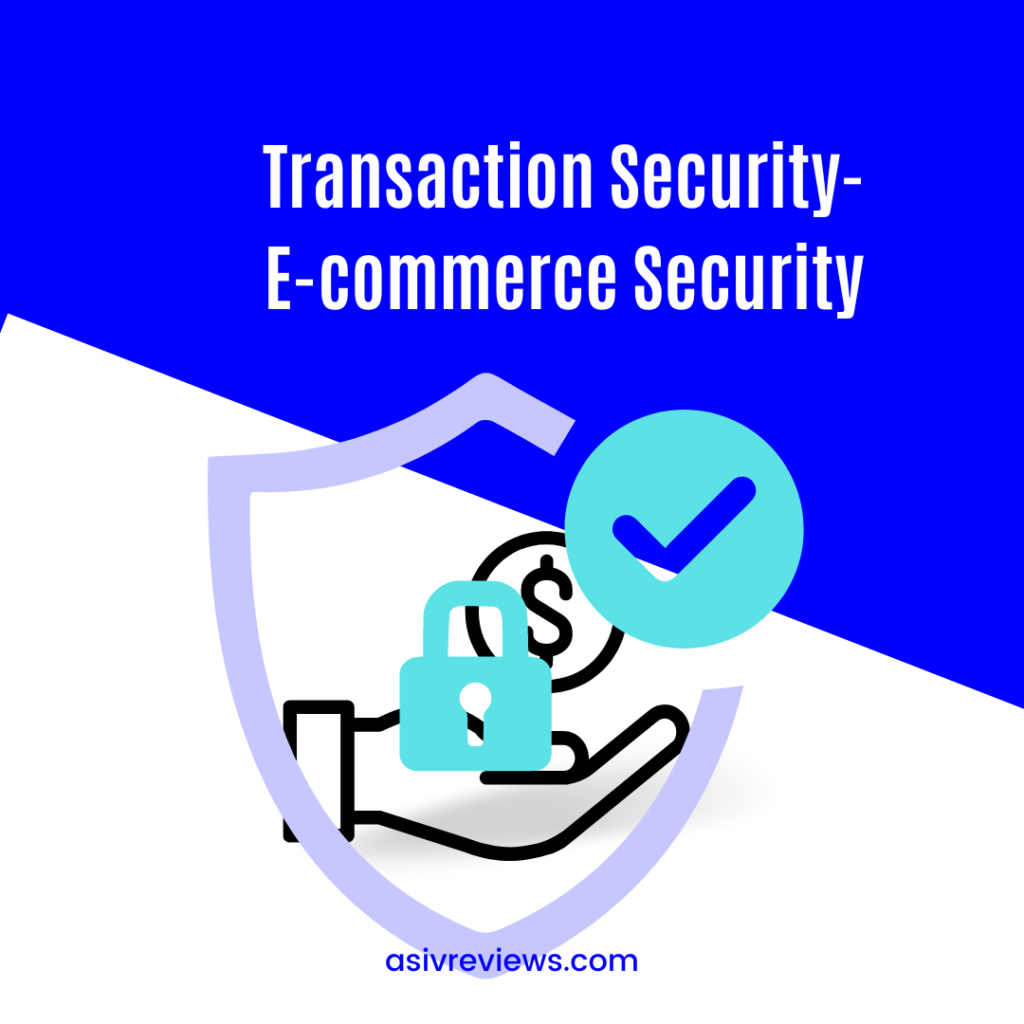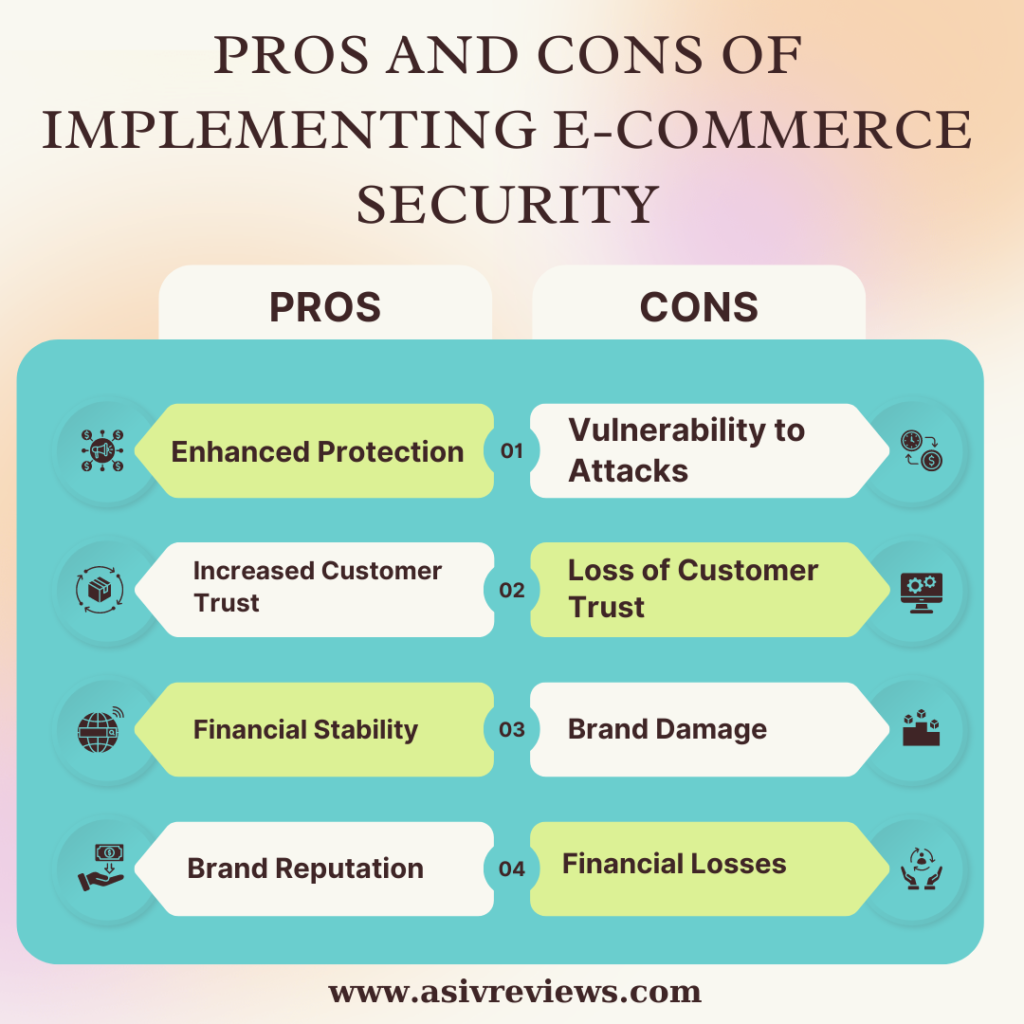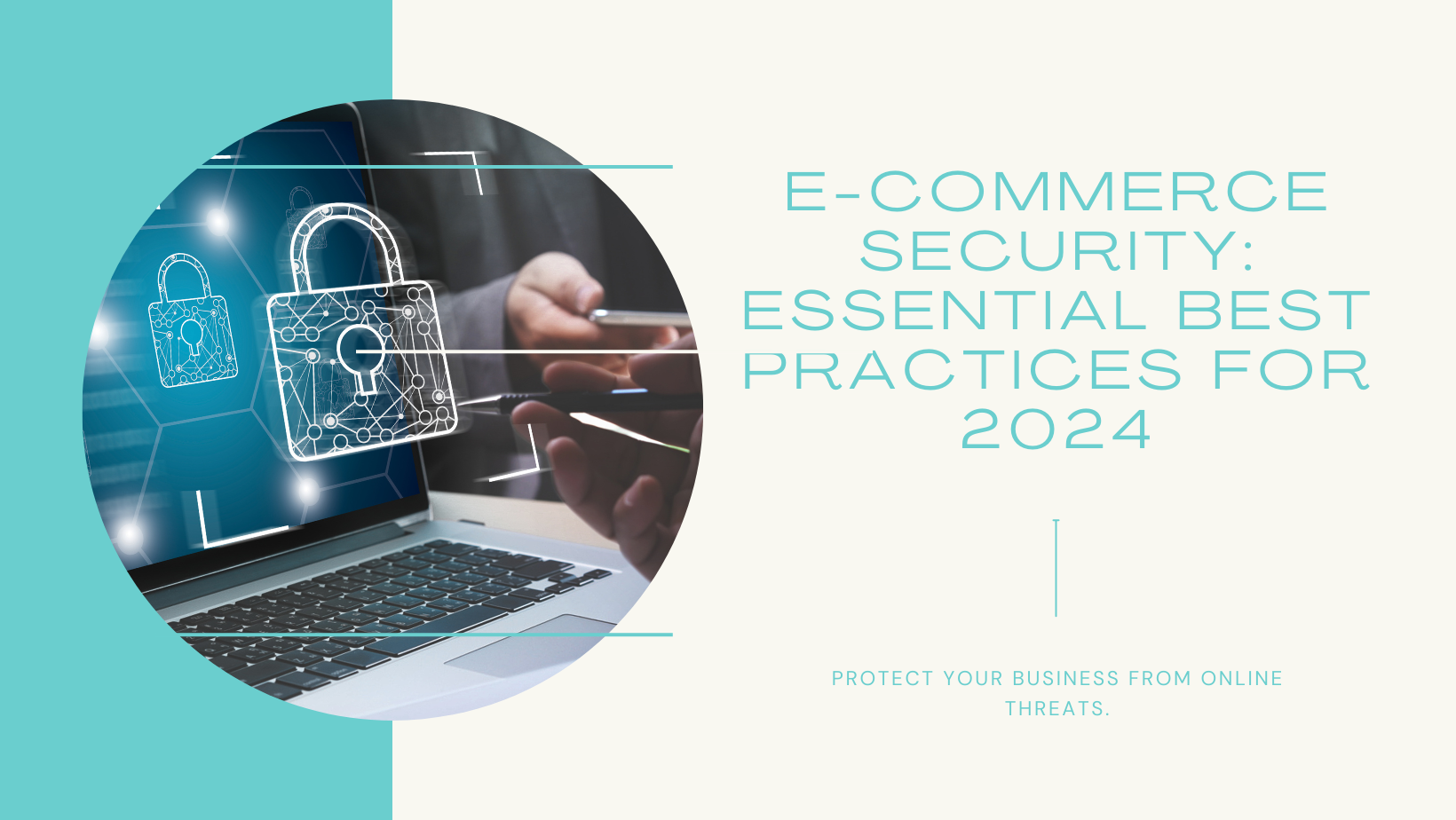In the dynamic world of online commerce, E-commerce Security has emerged as a pivotal shield in safeguarding the integrity and trust of digital marketplaces. As we step into 2024, the significance of robust security measures has never been more pronounced, driven by the rapid advancements in technology and a corresponding rise in sophisticated cyber threats. This introduction sets the stage for a deep dive into the crucial best practices in E-commerce Security, highlighting the major shifts in recent years and their profound impact on the landscape of e-commerce.
Table of Contents
Section 1: Understanding the E-commerce Security Landscape
As we navigate the vast expanse of E-commerce Security, it becomes evident that the landscape is teeming with both familiar foes and emerging threats. The digital realm is a battleground where vigilance is paramount, with phishing scams, ransomware, and data breaches constituting the front lines. These threats, sophisticated in their guises, aim to exploit any chink in the armor of e-commerce platforms, making the understanding of these dangers the first critical step in fortification.

Recent years have witnessed a seismic shift in the tactics of cybercriminals, with a notable rise in targeted attacks that leverage advanced technologies and social engineering to breach defenses. The advent of artificial intelligence and machine learning has not only propelled the capabilities of legitimate businesses but has also provided cybercriminals with potent tools to enhance the precision and destructiveness of their attacks.
In this evolving battlefield, the role of specialized security solutions becomes invaluable. Services like SurfShark and NordVPN offer advanced encryption and secure connections, helping safeguard data in transit and providing a robust defense against interception and eavesdropping. Meanwhile, NordVpn can serve as a shield for browsing activities, protecting against potential vulnerabilities and enhancing the overall security posture of e-commerce operations.
Section 2: The Foundations of E-commerce Security
At the core of a secure online marketplace lies a robust foundation, meticulously constructed from essential E-commerce Security practices. These practices serve as the bedrock upon which the safety and trustworthiness of e-commerce platforms are built, safeguarding against the ever-evolving landscape of cyber threats.
HTTPS Protocol
The shift towards the HTTPS protocol marks the first line of defense in e-commerce security. By encrypting data transmitted between a customer’s browser and the e-commerce website, HTTPS ensures that sensitive information such as personal details and payment information remains confidential and secure. This encryption not only protects against eavesdroppers but also solidifies customer trust, as it visibly demonstrates the site’s commitment to security.
Security Policies
Crafting comprehensive security policies forms the strategic framework of E-commerce Security. These policies outline how data is handled, who has access to it, and the procedures in place for responding to security breaches. By clearly defining these guidelines, e-commerce businesses establish a proactive stance towards security, ensuring a unified approach across all levels of the organization.
Regular Security Updates
The digital realm is in a constant state of flux, with new vulnerabilities emerging regularly. Maintaining the integrity of an e-commerce platform necessitates regular security updates and patch management. This proactive measure ensures that potential entry points for hackers are promptly addressed, keeping the platform several steps ahead of threats.
Multi-Factor Authentication (MFA)
As an added layer of security, MFA requires users to provide multiple forms of verification before granting access to sensitive areas or information. This method significantly lowers the risk of unauthorized access, as it combines something the user knows (like a password) with something they have (like a mobile device).
VPN Services
Incorporating VPN services such as NordVPN, and SurfShark into the security strategy offers an extra layer of encryption for data in transit. This is particularly crucial when managing remote access to the e-commerce platform, ensuring that connections from potentially insecure networks do not compromise the site’s security.
Together, these foundational elements constitute a formidable defense mechanism for e-commerce platforms, addressing various aspects of digital security from data transmission to access control. Implementing these practices not only fortifies the platform against attacks but also enhances customer confidence, fostering a secure and trustworthy online shopping environment
Section 3: Authentication and Access Management
In the fortified citadel of E-commerce Security, the gates and passcodes—authentication and access management—stand as critical defenses. Just as a castle’s gatekeeper must recognize friend from foe, e-commerce platforms must meticulously control who gains entry to their digital domains and what treasures they can access once inside.
The implementation of multi-factor authentication (MFA) represents one of the most effective strategies in this regard. By requiring multiple proofs of identity, MFA significantly reduces the risk of unauthorized access, acting as a series of gates, each with a unique key. In addition, the utilization of strong, complex passwords and the management of access rights based on roles ensures that only the right individuals have the right level of access to sensitive information.

This section would be incomplete without mentioning the role of VPN services like NordVPN and SurfShark in enhancing authentication processes. By securing the data traffic between users and the e-commerce platform, these VPNs add an extra layer of encryption, making the data exchange process more secure. This is especially critical in scenarios where employees access the platform from remote or public networks, as it shields the authentication process from potential eavesdroppers.
Section 4: Transaction Security
The lifeblood of any e-commerce operation is its transactions; thus, securing these transactions is paramount. This involves not just the encryption of credit card data and other personal information but also ensuring that the entire transaction process is conducted over secure, encrypted channels. Compliance with the Payment Card Industry Data Security Standard (PCI DSS) is not merely a regulatory checkbox but a foundational element of transaction security, ensuring that e-commerce businesses adhere to the highest standards of data protection.

In this arena, the encryption services offered by VPN providers like SurfShark can play a significant role. While not directly involved in transaction processing, a secure VPN can protect the data in transit between the customer and the e-commerce platform, ensuring that sensitive information remains confidential and secure from potential interception.
Section 5: Fraud Prevention and Monitoring
As e-commerce continues to grow, so does the sophistication of fraudsters aiming to exploit online businesses. Fraud prevention and monitoring are thus pivotal components of E-commerce Security, involving the deployment of advanced detection tools and technologies to identify and mitigate fraudulent activities before they can inflict harm.
Techniques such as real-time transaction monitoring and the use of artificial intelligence to analyze patterns and detect anomalies are at the forefront of this battle. Early warning systems, which alert businesses to suspicious activities, are crucial for preempting potential fraud.This are some notable companies that aid e-commerce businesses in fortifying their defenses against fraud:Kount,Riskified,ClearSale:,Sift:,Forter,Signifyd.

VPN services contribute to fraud prevention efforts by securing the connection between buyers and sellers. By using VPNs like NordVPN, businesses can add an additional layer of security, reducing the risk of man-in-the-middle attacks and ensuring that communications remain confidential and untampered.
Section 6: Protecting Customer Data
In the digital age, customer data is gold, and protecting this treasure is a top priority for E-commerce Security. Beyond the basic step of encrypting data, safeguarding personal information involves a comprehensive approach, including adherence to privacy regulations such as the General Data Protection Regulation (GDPR) and the creation of robust incident response plans.
Services like SurfShark shine in this domain, offering features that enhance privacy and security for e-commerce platforms and their customers. By encrypting data traffic, these VPNs help protect customer data from potential interception, making it harder for unauthorized parties to access sensitive information.
Section 7: The Importance of a Security Culture Within the Organization
The final bastion of E-commerce Security is not a technology or a tool but the people within the organization. Cultivating a culture of security awareness and vigilance is paramount, as even the most advanced security systems can be undone by human error or negligence.
Regular training sessions, clear communication of security policies, and fostering an environment where security concerns can be freely discussed and addressed are all critical. In this culture, VPNs like NordVPN serve as more than just tools; they are part of an educational process, demonstrating the importance of secure connections and the role of encryption in everyday operations.
Section 8.Pros and Cons of Implementing E-commerce Security
Pros of Implementing E-commerce Security:
- Enhanced Protection: Utilizing E-commerce Security measures such as encryption, VPNs (e.g., NordVPN, SurfShark,), and multi-factor authentication shields sensitive data and financial transactions from cyber threats, significantly reducing the risk of data breaches and fraud.
- Increased Customer Trust: A secure e-commerce platform reassures customers that their personal and payment information is safe, fostering a sense of trust and security that is crucial for customer retention and loyalty.
- Regulatory Compliance: Many regions require compliance with data protection standards (like GDPR). Implementing robust E-commerce Security practices ensures compliance, avoiding potential legal penalties and fines.
- Brand Reputation: A reputation for strong security measures can set a brand apart in a crowded marketplace, enhancing its image and attracting more customers.
- Financial Stability: By preventing data breaches and fraud, businesses avoid the associated financial losses and the costly aftermath of a security incident, including customer compensation and legal fees.

Cons of Neglecting E-commerce Security:
- Vulnerability to Attacks: Without adequate security measures, e-commerce platforms are exposed to a wide array of cyber threats, making them easy targets for hackers and malicious entities.
- Loss of Customer Trust: Customers are less likely to engage with platforms that have experienced security breaches, leading to loss of business and damage to customer relationships.
- Non-Compliance Penalties: Failing to adhere to data protection regulations can result in hefty fines and legal repercussions, impacting the financial health of the business.
- Brand Damage: Security incidents can tarnish a brand’s reputation, making it difficult to recover customer trust and loyalty. The negative publicity can deter new customers and erode the existing customer base.
- Financial Losses: The direct costs of a security breach, including remediation efforts, legal fees, and potential compensation for affected customers, can be substantial. Indirect costs, such as loss of future sales due to damaged reputation, can further exacerbate financial strain.
In summary, the benefits of implementing E-commerce Security practices far outweigh the risks and costs associated with neglecting them. Investing in security is not just a protective measure but a strategic business decision that supports growth, customer satisfaction, and long-term success.
Conclusion
E-commerce Security is an ever-evolving field that demands constant attention, adaptation, and proactive measures. As we navigate through 2024, the integration of advanced technologies and practices, along with partnerships with trusted security service providers like SurfShark, NordVPN, will be key in safeguarding the digital commerce landscape. Embracing these essential best practices in E-commerce Security is not just about protecting businesses but also about ensuring a safe, secure, and trustworthy experience for customers worldwide.








